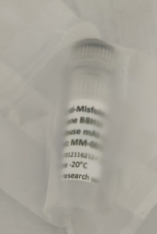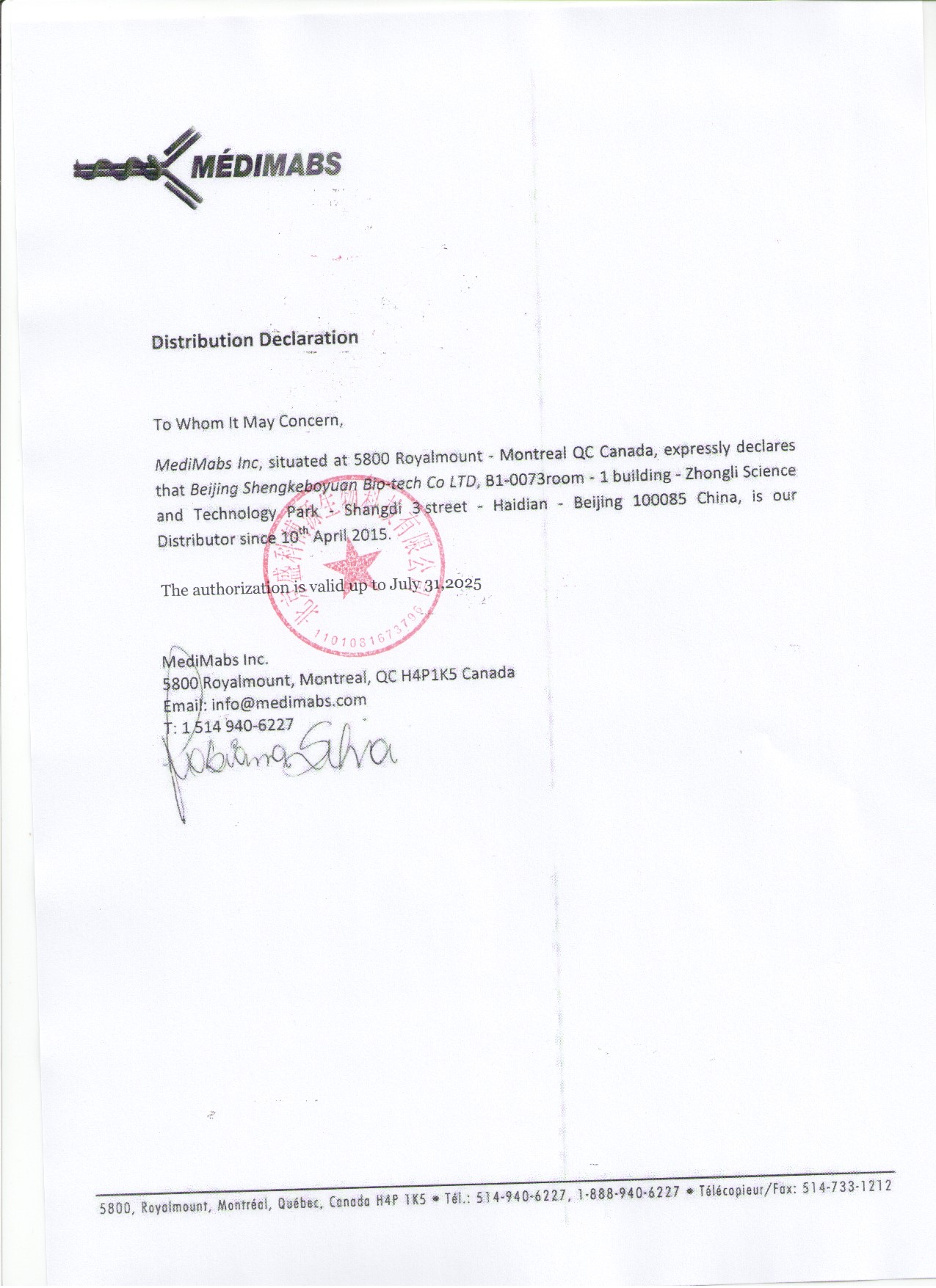 首页>
生物试剂
首页>
生物试剂
商家描述
商家资质信息
产品评价(0)
Target
Carcinoembryonic antigen (CEA)
Target background
Carcinoembronic antigen (CEA), an oncodevelopmental tumor marker is a fairly typical, high-molecular weight, cell surface glycoprotein over-expressed in adenocarcinomas of entero-dermally-derived digestive system epithelia and in fetal colon. The majority of antibodies induced against CEA would cross-react with a variety of proteins present in normal tissues such as non-specific cross-reacting antigen (NCA). Highly specific anti-CEA mouse monoclonal antibody was produced as a result of a unique imunization protocol.
Target alias
CEA
Immunogen
Physically modified CEA
Specificity
This antibody is CEA specific. It does not recognize NCA, neither in enzyme linked immunosorbent assay (ELISA) not on Western blots of crude tissue extracts. This antibody binds to CEA producing human adenocarcinoma cells (e.g. LS174T,WiDr) but does not bind to CEA non-secreting human adenocarcinoma cells (Colo 320DM). It does not immunostain cryocuts of any normal human tissues tested (artery, heart muscle, kidney, large bowel, liver, lung, skeletal muscle, skin, small gut, spleen, testes or vein) neither does it react with any antigens on human blood cells when separated by fluoresceine actuated cell sorter (FACS). Immunohistochemical analysis of cancerous tissues revealed that the antibody bound selectively adenocarcinoma and not carcinoid tumor of the colon, as well as tumor- associated CEA in breast, gastric and lung neoplasms, while there was no immunohistochemical evidence of cross-reactivity with NCA. A remarkable feature of this antibody is its ability to distinguish immunohistochemically between cancer and residual normal tissue within the same organ.
Clone ID
C234
Isotype
IgG kappa
Preservative
None
Format
Purified with protein A, stored in PBS pH 7.4 and lyophilized. (Full IgG)
Recommend starting dilution
Reconstitute with deionized water. Optimal dilution has to be determined by the user.
Limitations
Research Use Only
Storage
Lyophilized antibodies can be kept at 4ºC for up to 3 months and should be kept at -20ºC for long-term storage (2 years). To avoid freeze-thaw cycles, reconstituted antibodies should be aliquoted before freezing for long-term (1 year) storage (-80ºC) or kept at 4ºC for short-term usage (2 months). For maximum recovery of product, centrifuge the original vial prior to removing the cap. Further dilutions can be made with the assay buffer. After the maximum long-term storage period (2 years lyophilized or 1 year reconstituted) antibodies should be tested in your assay with a standard sample to verify if you have noticed any decrease in their efficacy. To limit antibody loss or degradation, BSA (final concentration 1%) and sodium azide (final concentration 0.02%) can be added to the suggested first dilution. It is important to first verify if those preservatives are compatible with your assay.
 会员登录
会员登录.getTime()%>)
 购物车()
购物车()

 成功收藏产品
成功收藏产品
